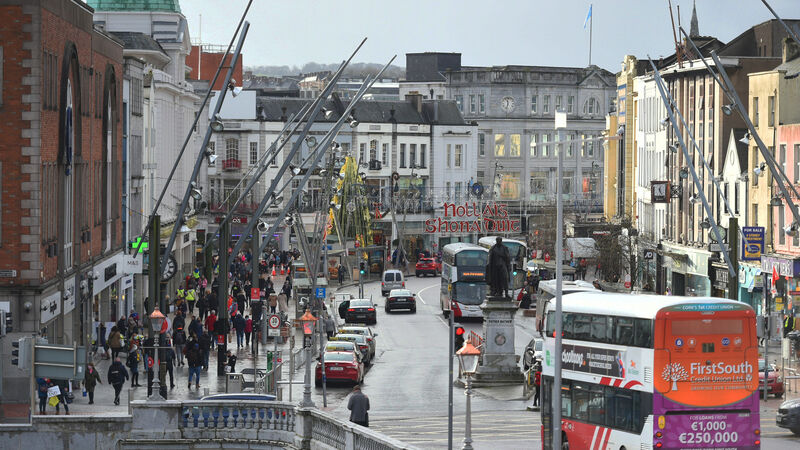ESRI: Economy set for ‘remarkable’ upturn but unemployment still at 10% at end of 2021

A busy pre-Christmas shopping scene on St Patrick's St, Cork, as the ESRI forecasts a huge economic recovery. Picture: Larry Cummins
After an extraordinary year, the economy is heading for a huge recovery helped by the unleashing of billions in household savings but even a strong rebound will still mean 240,000 are left unemployed and it will take a number of years for the jobless rate to return to its pre-Covid-19 pandemic level.
These are among the key forecasts from the Economic and Social Research Institute (ESRI) as it tracks the likely path leading to the start of a strong recovery in 2021.











